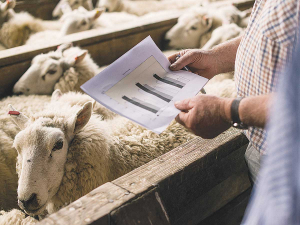NZ scientists make breakthrough in Facial Eczema research
A significant breakthrough in understanding facial eczema (FE) in livestock brings New Zealand closer to reducing the disease’s devastating impact on farmers, animals, and rural communities.
 The report found that the high level of ingenuity in the rural communities was a key element to their resilience and capacity to overcome movement restrictions and the disruption caused by Covid. Photo: Kieren Scott.
The report found that the high level of ingenuity in the rural communities was a key element to their resilience and capacity to overcome movement restrictions and the disruption caused by Covid. Photo: Kieren Scott.
A new study has found a strong ‘can do’ attitude and cooperative spirit in the agricultural sector were significant factors in minimising losses and uncertainties during the Covid restrictions last year.
The report, co-authored by Lincoln University’s Dr Lei Cong – with contributors from AgResearch, The University of Queensland, NZ Institute of Economic Research, and Plant and Food Research – measured the immediate impacts of Covid-19 restrictions to June 2020 on the Australian and New Zealand agri-food systems and how resilient these systems were.
It found the effects on both countries were broadly similar, with relatively minor economic impacts across the surveyed agri-sector industries.
The report says the high level of ingenuity in the rural communities, both in Australia and New Zealand, was likely a key element to their resilience and capacity to overcome movement restrictions and the disruption of value chains.
“Restrictions and new rules of engagement and interaction were adopted rapidly as ‘people accepted a new reality and adapted to it’.”
According to the report, the agricultural sectors in both countries “assimilated the many ‘unmanageable disruptions’, such as the loss or disruption to export markets and short supply of inputs. This created impetus for diversifying markets and strengthened business cases for value-adding and local manufacturing.”
It also suggests that this resilience emerged from a combination of the agri-sector industries having relatively high technology, being well connected/networked and having some experience of prior shocks – as well as being well supported, primarily logistically, by their governments.
“Agricultural producers in Australia and New Zealand are well organised and business-oriented, and thus had the right structures and sufficient financial backing to manage through a pandemic,” the report states. “Product demand was maintained domestically due to income support, while export markets remained fairly constant.”
It also noted that some important lessons – such as the need to upskill young people in rural areas and control or reverse the negative rural migration, the need to diversify export markets, as well as the need to plan for the ‘unplannable’ to deal with the next ‘Black Swan’ event.
The researchers conducted 44 interviews and had 321 responses to the survey with similar numbers of responses from non-farmers across the two countries. They had about twice as many responses from farmers in New Zealand than in Australia.
The Meat Industry Association of New Zealand (MIA) today announced that Chief Executive Officer Sirma Karapeeva has resigned from the role.
The winners of the 2026 Hawke’s Bay/Wairarapa Dairy Industry Awards were announced at the annual awards dinner held at Copthorne Solway Park in Masterton on Thursday evening.
Environment Southland is welcoming this week’s decision by the Environmental Protection Authority (EPA) to approve the release of Blaptea elguetai, a leaf‑feeding beetle that will help control the highly invasive Chilean flame creeper.
This March, the potato industry is proudly celebrating International Women’s Day on 8 March alongside the International Year of the Woman Farmer, recognising the vital role women play across every part of the sector — from paddocks and packhouses to research, leadership, and innovation.
Fruit trader Seeka posted a record profit and returns to shareholders in 2025.
Recent weather events in the Bay of Plenty, Gisborne/Tairawhiti, and Canterbury have been declared a medium-scale adverse event.

OPINION: A mate of yours truly reckons rural Manawatu families are the latest to suffer under what he calls the…
OPINION: If old Winston Peters thinks building trade relations with new nations, such as India, isn't a necessary investment in…